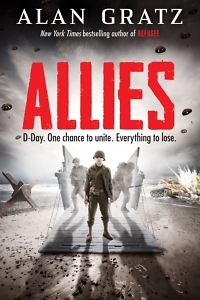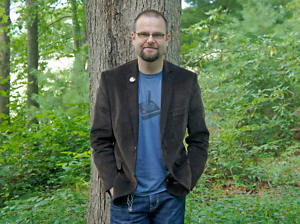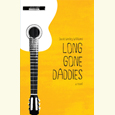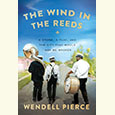The World Would Never Be the Same
Alan Gratz’s new novel for young readers sensitively portrays multiple perspectives on D-Day
In Allies, his latest novel for young readers, New York Times bestselling author and Knoxville native Alan Gratz returns to a favorite subject: World War II depicted through the eyes of the young people who lived it.
The novel opens and closes with 16-year-old Dee Carpenter, a U.S. Army private aboard a transport ship heading for the coast of Normandy, France, in the early hours of June 6, 1944. “Today was D-Day,” Gratz writes. “The most important day of the Second World War. Maybe the most important day in all of human history. Dee got goose bumps just thinking about it. Everything was riding on this day. If they screwed it up, the world would never be the same.” Allies takes place during a 24-hour period on and around Omaha Beach, the bloodiest battle of the day, and follows the experiences of a diverse group of young people.
Eleven-year-old Samira and her mother are members of the French Resistance, brave patriots who disrupt Nazi operations by any means available — from carrying secret messages to cutting communication lines, derailing transport trains, and blowing up bridges. But Samira’s family are subject to discrimination in France because they are natives of Algeria, a French colony that longs for its independence. James, a 19-year-old Canadian paratrooper, enlists after his hometown stages a city-wide mock Nazi invasion they call “If Day.” Complete with military aircraft, actors in rented costumes, mock arrests, and book burnings (of worn-out library books), the day is meant to encourage empathy for the plight of Europe under Nazi occupation.
Bill is a 19-year-old English tank operator, whose father fought in World War I and left his name carved into a rock in the city of Amiens, France. Bill hopes to get the chance to carve his own name beneath his father’s. Twenty-year-old Chicago native Henry graduates from the U.S. Army’s Officer Candidate School, only to find that no positions as an officer are open to him because he is black. Instead he trains as a medic and joins the 320th Barrage Balloon Battalion, a segregated unit. On Omaha Beach, he treats whoever who needs help, no matter the color of their skin.
 The youngest of the main characters, Monique, is only 13 and lives nearby. She cycles to the beach early in the morning to retrieve a forgotten bathing suit, only to find that war has broken out. She hides until the fighting is over and then meets Dorothy, an American war reporter, and together they give first aid to the wounded. (Dorothy is based on real-life journalist Martha Gellhorn, who famously disguised herself as a soldier and came ashore with a medical crew, the only American woman on the beach that day.)
The youngest of the main characters, Monique, is only 13 and lives nearby. She cycles to the beach early in the morning to retrieve a forgotten bathing suit, only to find that war has broken out. She hides until the fighting is over and then meets Dorothy, an American war reporter, and together they give first aid to the wounded. (Dorothy is based on real-life journalist Martha Gellhorn, who famously disguised herself as a soldier and came ashore with a medical crew, the only American woman on the beach that day.)
Gratz quickly brings his characters to life — using details such as a family story, a fight against discrimination, or even a forgotten bathing suit — and then skillfully weaves their narratives together into a captivating, distinctly personal, and multi-dimensional view of this complicated event. His depictions of the carnage and destruction of war are both sensitive and matter-of-fact. On Omaha Beach, Dee is shocked by the deadly disorganization of the battle: “This was madness. What kind of invasion was this? Who had decided they should come ashore in broad daylight, into the teeth of the German guns? … This had to be the worst invasion in history.” James is stunned by the sudden deaths of four men, including his commanding officer: “The way Major MacLeod and the others had been there one moment and then just — just obliterated the next chilled James to the bone. The thought that his life might end instantly, explosively, in the fraction of a second, scared a stillness into him he knew would be with him the rest of his life.”
In the author’s note, Gratz breaks down the casualties for “the largest seaborne invasion in history”: 4,500 Allied troops dead, with more than 10,000 wounded, to produce an unqualified victory that would lead directly to Germany’s unconditional surrender less than one year later. “All these poor men,” Dorothy observes. “Not even men. Boys, most of them. … It’s America’s future we’re sacrificing here on these beaches, and in Africa, and Italy, and the Pacific, and the skies over Germany.” In Allies, as in previous books such as Grenade and Refugee, Gratz consistently depicts an age-appropriate view of the reality of war in human terms both tragic and heroic.

Tina Chambers has worked as a technical editor at an engineering firm and as an editorial assistant at Peachtree Publishers, where she worked on books by Erskine Caldwell, Will Campbell, and Ferrol Sams, to name a few. She lives in Chattanooga.



